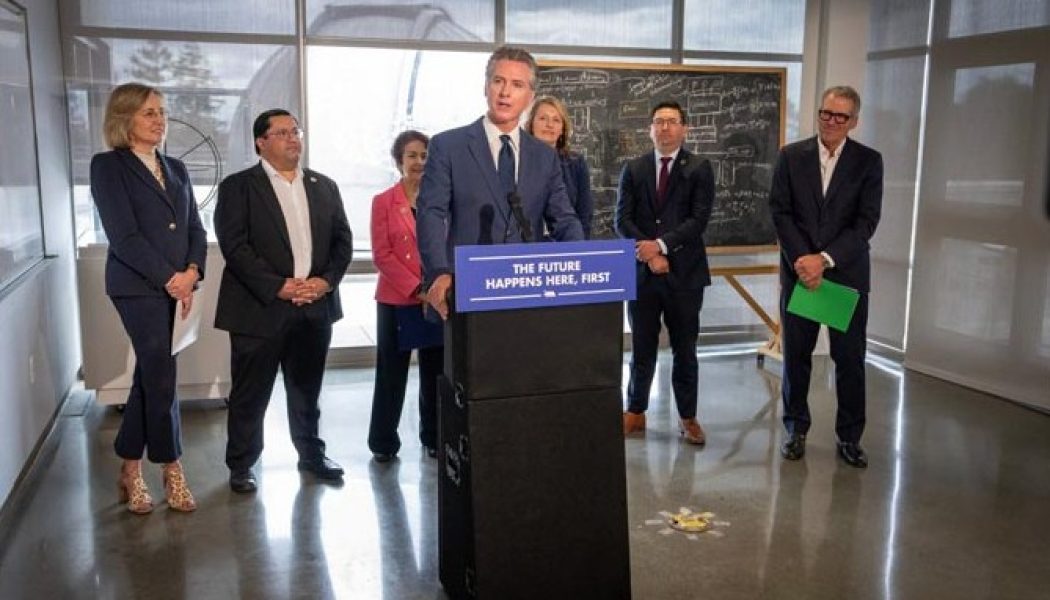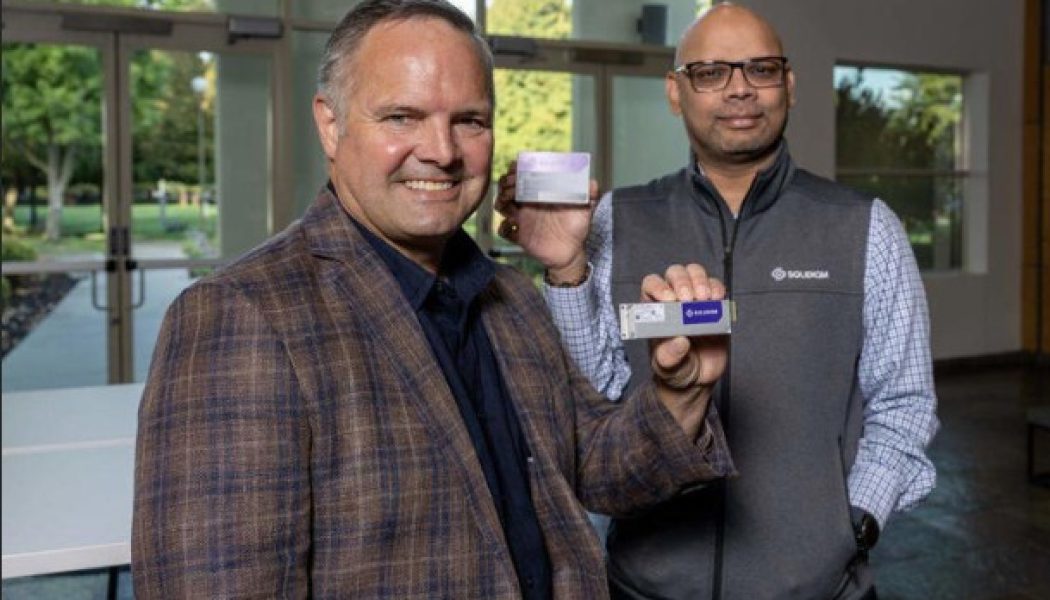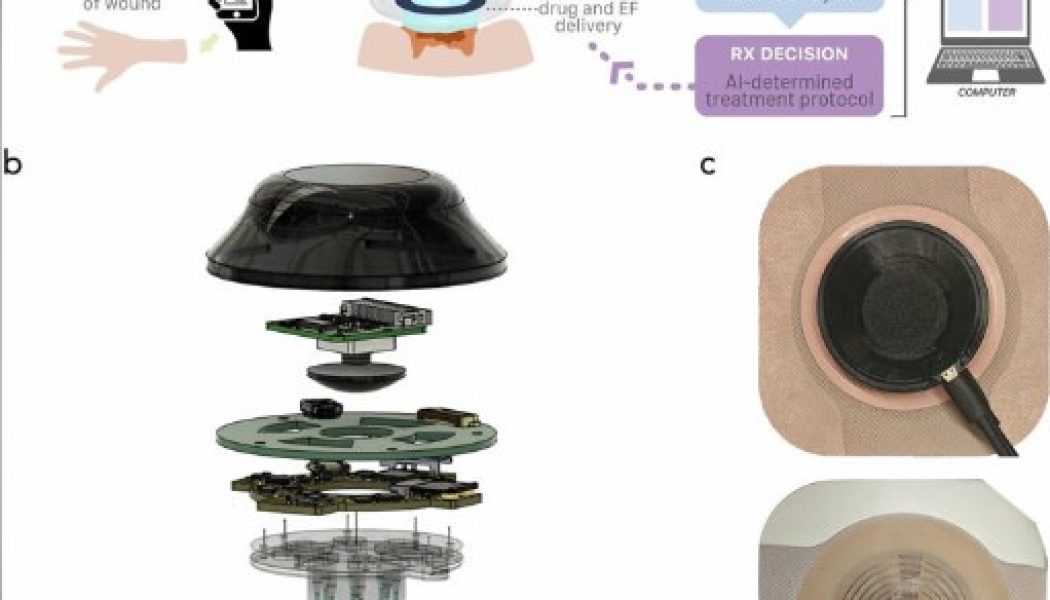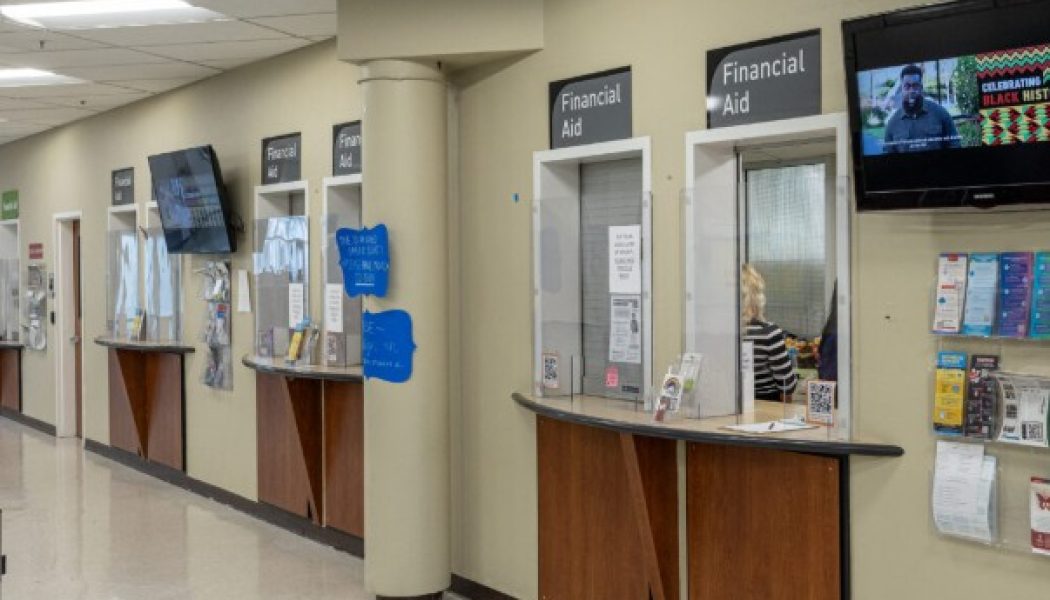Providence Technology Group
UC faculty and alums behind 13 of TIME’s Best Inventions of 2025
TIME magazine recently released its Best Inventions of 2025, highlighting the emerging technology and products that are “changing how we live, work, play, and think about what’s possible.” UC’s ever ingenious faculty and alumni are right in the thick of it, being lauded for innovations that could help cure baldness, control tremors in people with Parkinson’s disease, and offer a new biological tool for protecting endangered species, among others. The recognition from TIME comes shortly after Pitchbook placed six UC campuses — Berkeley, UCLA, San Diego, Santa Barbara, Davis, and Irvine — among the world’s top 100 universities for undergraduate alumni who started venture-backed businesses. Keep Reading This Article at University of California News
Newsom signs new AI laws, but rejects ‘overly broad’ ones
SACRAMENTO – Gov. Gavin Newsom on Monday announced a handful of new laws regulating artificial intelligence and social media even as he vetoed what he said were overly broad measures to regulate the technology. The bills Newsom signed Monday aim to crack down on artificially generated pornography, require warning labels on social media websites, and regulate AI chatbots for minors. But he vetoed a bill that would have prohibited companies from letting children use chatbots that promote sex or violence and another that would have banned employers from letting AI decide when to fire people. Keep Reading This Article at Yahoo News
Governor Newsom Signs Legislation and Announces New Funding to Advance the Golden State’s Fusion and Quantum Sectors
As the world’s innovation hub, California continues to lead. Today, Governor Gavin Newsom signed two pieces of legislation into law and announced new funding to help maintain California’s ongoing dominance in emerging technologies that are fueling our future. The bills and new funding will advance California’s dominance in quantum and fusion technologies, helping to ensure the state continues to produce a strong talent pipeline, foster new research and development, and create opportunities for these technologies of the future to grow in regions throughout the state. The Governor signed the legislation and announced the new funding at the National Quantum Information Science Research Centers at the University of California, Berkeley, one of two national quantum centers in the state. ...[Read More]
Four years after Intel spinoff, Rancho Cordova-based Solidigm launches new AI lab
The drive is about the size of a deck of playing cards. But, company executives say, it could store every movie released in the 1990s. It’s a technological feat by Solidigm – the Rancho Cordova-based memory storage company – and evidence of the competition, among tech companies, to meet the AI-induced demand for processing power and storage. Keep Reading This Article at MSN.com
Smart device uses AI and bioelectronics to speed up wound healing process
As a wound heals, it goes through several stages: clotting to stop bleeding, immune system response, scabbing, and scarring. A wearable device called “a-Heal,” designed by engineers at the University of California, Santa Cruz, aims to optimize each stage of the process. The system uses a tiny camera and AI to detect the stage of healing and deliver a treatment in the form of medication or an electric field. The system responds to the unique healing process of the patient, offering personalized treatment. Keep Reading This Article at MSN.com
Why California backed off again from ambitious AI regulation
After three years of trying to give Californians the right to know when AI is making a consequential decision about their lives and to appeal when things go wrong, Assemblymember Rebecca Bauer-Kahan said she and her supporters will have to wait again, until next year. The San Ramon Democrat announced Friday that Assembly Bill 1018, which cleared the Assembly and two Senate committees, has been designated a two-year bill, meaning it can return as part of the legislative session next year. That move will allow more time for conversations with Gov. Gavin Newsom and more than 70 opponents. The decision came in the final hours of the California Legislative session, which ends today. Keep Reading This Article at CalMatters
What is the worst-case scenario for AI? California lawmakers want to know.
When it comes to AI, as California goes, so goes the nation. The biggest state in the US by population is also the central hub of AI innovation for the entire globe, home to 32 of the world’s top 50 AI companies. That size and influence have given the Golden State the weight to become a regulatory trailblazer, setting the tone for the rest of the country on environmental, labor, and consumer protection regulations — and more recently, AI as well. Now, following the dramatic defeat of a proposed federal moratorium on states regulating AI in July, California policymakers see a limited window of opportunity to set the stage for the rest of the country’s AI laws. Keep Reading This Article at MSN.com
How California community colleges are using AI to battle financial aid fraud
Community colleges in California for years have been fighting a losing battle with fraudsters who have stolen millions of dollars in federal and state financial aid. But now state officials believe they are finally turning a corner thanks to new tools. The game-changer? Artificial intelligence. Keep Reading This Article at EdSource
Why did the CSU spend millions on ChatGPT amid a budget crisis? We asked school leaders
Starting this year, all California State University students and faculty will have access to OpenAI’s ChatGPT Edu, a bespoke version of one of the world’s leading chatbots. Some educators have welcomed the university system’s pivot to artificial intelligence. Earlier this year, the system put out a call for proposals, asking faculty to come up with strategies to integrate AI literacy into the curricula. By May, the CSU received more than 400 proposals. Ultimately, 63 of them were awarded up to $60,000 in grants. Keep Reading This Article at LAist
State bill requiring testing of AI decision systems draws fire
A years-in-the-making California bill that would take a step toward regulating artificial intelligence and other automated systems used in hiring, work benefits and insurance claims is drawing fierce opposition from the business community and pushback from within the state government. The trade group representing some of San Francisco’s biggest technology companies has made killing the bill a top priority this legislative session, while the California Chamber of Commerce has come out against it, too. Keep Reading This Article at San Francisco Examiner
You have a right to delete your data. Some companies are making it extra difficult
Data brokers are required by California law to provide ways for consumers to request their data be deleted. But good luck finding them. More than 30 of the companies, which collect and sell consumers’ personal information, hid their deletion instructions from Google, according to a review by The Markup and CalMatters of hundreds of broker websites. This creates one more obstacle for consumers who want to delete their data. Keep Reading This Article at CalMatters
Gov. Newsom announces new statewide partnership with tech giants to bolster AI education, resources
SACRAMENTO, Calif. — Gov. Gavin Newsom on Thursday announced that California will partner with four major tech companies to boost generative AI education, resources and skills. Google, Adobe, IBM and Microsoft will work with the state to train California’s workforce for jobs in AI. The plan also includes preparing students in grades nine through 12, community colleges and the California State University System for careers in AI. Keep Reading This Article at KCRA.com
























